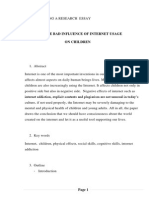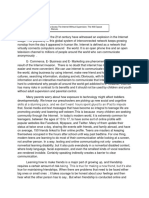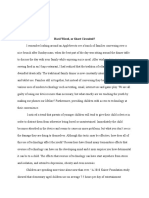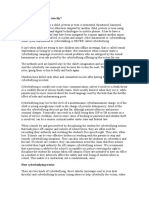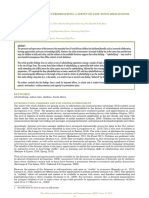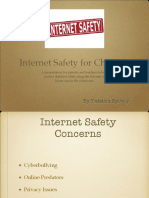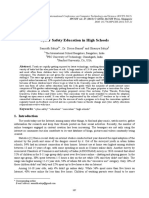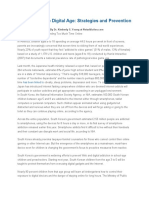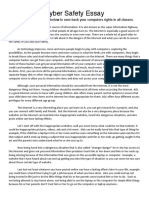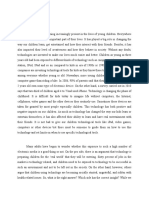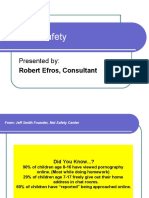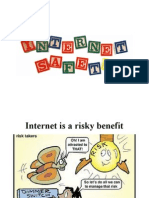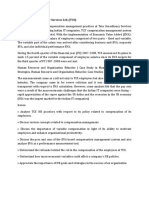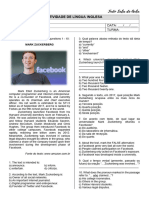MIS
The Internet: Friend or enemy to Children
The internet has so much to offer people of all ages, including children. School- aged
children typically use the internet for school assignments, for downloading music, playing
games, and for connecting with others. A child might use e-mail or instant messaging to
stay in touch with friends who have moved away or family members in distant locations.
Shy children may find an online community and set or “friends” with whom to share
feelings that they are unable to express in person. Children living in rural areas can stay in
touch with others who are isolated geographically.
But there’s a dark side to all that internet use. It can also socially isolate children and
expoose them to unhealthy activities and experience.
According to child and adolescent psychiatrist Dr, David Bassler, certain children become
too isolated as a result of heavy internet use. A shy or overweight child can become a
football star in an online game or a persona in Myspace. Bassleer believes that a degree of
this is healthy but if it starts to become the primary focus, it can become a problem. Staying
online for long periods of time may make a shy or depressed child even more shy or
depressed.
When children spend too much time online, they don’t do their homework or can’t focus on
their work in school because their online activities have drained their energy. They miss
out on sports and other activities and they don’t spend enough time with their real world
peers and family members.
E-mail and instant messaging can help youngsters stay in touch with friends and family but
they have also become instruments for “cyberbullying”. Kids will use these tools to send
insulting remarks to each other or to distribute personal details meant for few close friends
to a wide circle of strangers.
Ten million young people use the internet each day and one in five have been solicited or
approached by a child predator, according to the FBI. Federal arrests for online exploitation
of children doubled from 863 to 1649 within 2 to 3 years.
Online predators monitor screen names and scrutinize personal information on social
networking sites such as Myspace, freidnster and Facebook to find youngster with self-
esteem problems. They will as youngster question such as “do you like this band? Can I
help you with your homework?” Then they will try to arrange a physical meeting with
these juveniles.
�Dr. Robert Kraut, a professor at Carnegie-Mellon university who has studied online
behavior for more than a decade, found that the more people use the internet, the less they
socialize and the less they communicate with the family members. High internet usage
among teenagers is associated with a decline in social support. Many hours spent online in
casual conversation with other strangers don’t translate into meaningful relationships.
Obesity, now an epidemic in the united states, is especially prevalent among youngsters
who sit at their computers for hours at time munching on snack food. And there are plenty
of websites encouraging them to do just that.
Food companies aggressively use internet games and other perks such as screen-saver
downloads entice children into buying their bands. Their web sites offer children’s games
linked to snacks.
A Kaiser family foundation study found that between june and November 2005 more than
12.2 million children had visited 77 food company web sites it examined.
According to the study’s lead researcher Vicky Rideout, internet advertising “still doesn’t
have the reach TV advertising has. But who it does reach , it reaches more deeply.” This
study is the first to investigate the scope of internet advertising aimed at children.
a) Does use of the internet by children and teenagers pose and ethical dilemma? Why
or why not?
b) Should parents restrict use of the internet by children or teenagers ? why or why
not?


